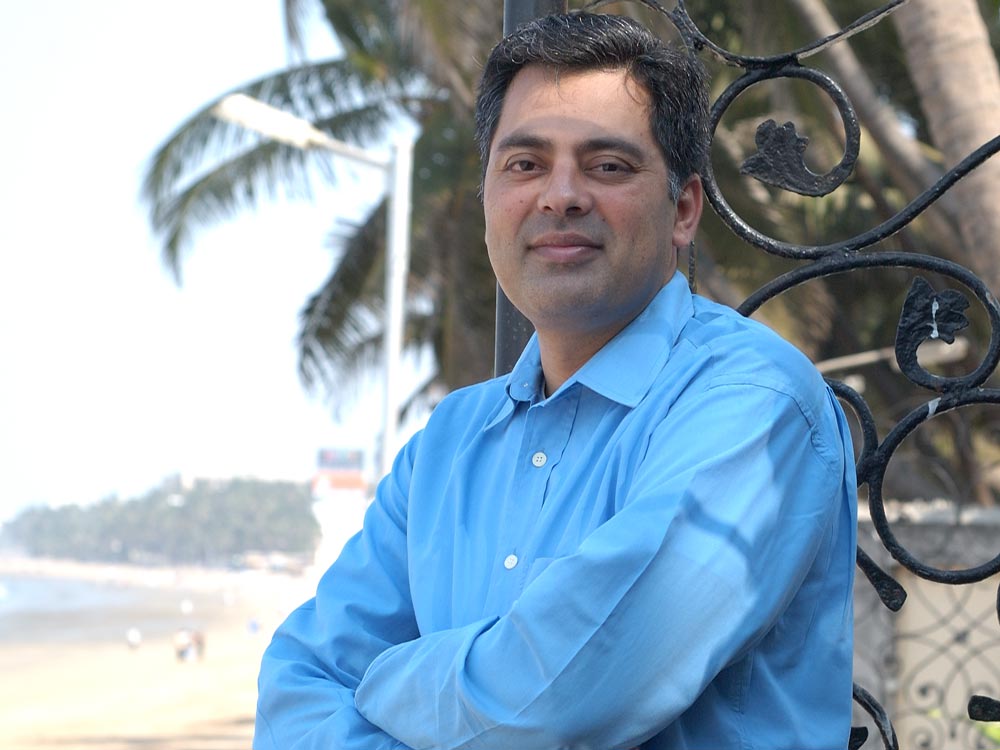
Value Research Stock Advisor has just released a new stock recommendation. You can click here to learn more about this premium service, and get immediate access to the live recommendations, plus new ones as soon as they are issued.
The meltdown in the markets following the coronavirus outbreak has been unprecedented. Investors want to know when this will all end and a recovery will start. Unfortunately, there are no easy answers. In such circumstances, it pays to listen to those who have years of experience in the market and have been through all its phases. Anoop Bhaskar of IDFC Mutual Fund is one such name. Bhaskar has experience of over 27 years in the mutual fund industry. He has managed a variety of funds in his career, many of which have proved to be highly rewarding for their investors. We speak to him to get the lowdown on the current crisis.
Your career as a fund manager has spanned decades. Is this the most testing time the Indian equity market has ever faced in your living memory? How do you compare this crisis to earlier ones such as the recession in 2008-09 and the dot-com bubble?
This is probably the toughest as it not only involves financial survival but actual survival of the individual. The uncertainty regarding a cure for the coronavirus and the media glare on the death toll in this pandemic differentiates the current crisis from other solely financial crises.
At the time of this interview, the outbreak in India is still on the rise. How deep an impact do you see on the economy and how long can it take for it to recover?
In the 1990s, Morcedai Kurz propounded the theory of rational beliefs - when one does not know the outcome, the range of estimates can be very wide and can be logically and rationally debated and are believable. While this theory is used in economics mainly for the pricing of services, it could be used to explain the current uncertainty and the anchoring for the most conservative (read, pessimistic) estimates. The reality, how deep this pandemic will strike, is an answer we don't know yet.
You are among the few fund managers who did pretty well on the last two occasions of market turmoil in 2008 and 2011, both when the markets were falling and also in the subsequent recovery. What strategies do you deploy to protect the downside and then participate well when the markets recover?
One of the lessons of 2008 and 2011 had been that participating in an upcycle is more important for attracting AUM rather than protecting downside. Hence, at IDFC AMC, the funds - IDFC Core Equity Fund and IDFC Sterling Value Fund - have maintained beta during this downturn and taken the blow on the chin. Hopefully, we will be at the forefront of the cavalry.
With the entire market deep in red currently, which pockets look particularly attractive to you and which ones would you like to avoid, given that it may take a while for the economy to recover?
One key question we are debating within the team is if financials will retain market leadership. The last decade has been the decade of financials. If the COVID -19 impact runs for over a month, then the financial damage it leaves behind will be as devastating as the body toll. This could impact the past trend of financials leading the market.
The other question we are debating is if this current downturn is the end of the current bull market or if it is a deep correction in a continuing bull market since 2013. The latter would imply that the segments of the market which did well in 2018 and 2019 - staples, discretionary, earnings consistency - will continue to outperform. If it is the former, then a new set of sectors will assume market leadership, as it happened in 2009 after the bull market of 2003-08.
You've just launched a small-cap fund. This should be a good time to build that portfolio. You must be able to get many great small caps at dream valuations.
In a way, the timing was propitious to build a new portfolio. We have paced ourselves and not rushed to fill the portfolio at the first instance of market falling. We believe that valuations are far more comfortable. Good consistent profit-making companies are available at valuations comparable to 2013 levels.
SIP culture had barely begun to take off and right now we are in a situation where even 10-year SIP returns are on the brink of turning negative. What's your message for equity investors?
In our view, today's stock prices do not have much meaning. Don't take decisions on a mutual fund portfolio based on the last six-month or even one-year performance. At times like these, one of the best actions is to take no action till sanity comes back.
How challenging would it be to bring back those investors, especially first-timers, who exit the market now?
Market returns have a funny way of 'con'vincing. Unfortunately, those who profit from the market are the ones who hold their nerves and don't throw in the towel when the outlook appears to be the darkest!








